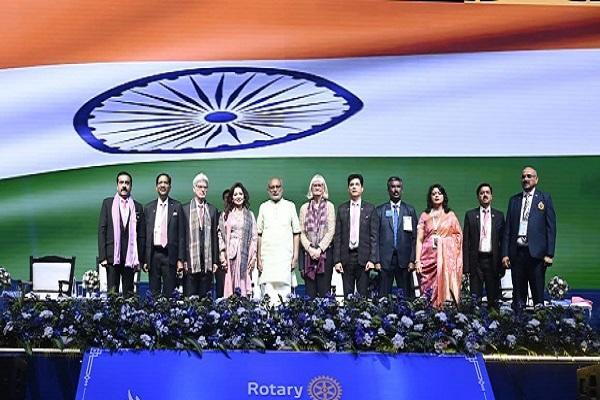
AI, Creators & Tier-2 Cities Power India’s Startup Growth
India’s startup ecosystem has been making waves globally, with a significant increase in venture capital investments, innovative products, and a surge in new business ideas. According to a recent report by Meta-A&M, the Indian startup landscape is witnessing a transformation, driven by the adoption of Artificial Intelligence (AI), omnichannel models, expansion to Tier-2 and Tier-3 cities, and creator-driven branding. In this blog post, we will delve into the key trends shaping India’s startup growth and explore the implications for entrepreneurs, investors, and the industry at large.
AI Adoption: The Game-Changer
One of the most significant trends in India’s startup growth is the widespread adoption of AI. According to the Meta-A&M report, an astonishing 70% of startups are using AI to drive innovation and efficiency. AI is being leveraged across various aspects of startup operations, including customer service, marketing, product development, and data analysis. The adoption of AI is particularly high in industries such as fintech, healthcare, and e-commerce, where it is helping companies improve customer engagement, automate processes, and gain a competitive edge.
The benefits of AI adoption are numerous. By automating repetitive tasks, AI enables startups to focus on high-value activities, such as product development, marketing, and customer acquisition. Additionally, AI-powered tools help startups analyze large data sets, identify patterns, and make data-driven decisions. This, in turn, enables them to develop more effective marketing strategies, optimize their operations, and improve customer satisfaction.
Omnichannel Models: The New Normal
Another key trend in India’s startup growth is the adoption of omnichannel models. According to the Meta-A&M report, 67% of startups are now using omnichannel strategies to engage with customers across multiple touchpoints, including social media, mobile apps, websites, and physical stores. Omnichannel models enable startups to provide a seamless customer experience, regardless of the channel or device used by the customer.
The benefits of omnichannel models are numerous. By providing a consistent customer experience across multiple channels, startups can increase customer satisfaction, loyalty, and retention. Omnichannel models also enable startups to gather customer data from multiple sources, providing them with a more comprehensive understanding of customer behavior and preferences.
Tier-2 and Tier-3 City Expansion: The Next Frontier
India’s startup growth is not limited to metropolitan cities like Bangalore, Delhi, and Mumbai. According to the Meta-A&M report, 95% of startups are now targeting smaller cities, including Tier-2 and Tier-3 cities. This expansion is driven by a growing demand for innovative products and services in these cities, as well as the availability of skilled talent and lower operating costs.
The expansion of startups to Tier-2 and Tier-3 cities is likely to have a significant impact on the Indian economy. By creating jobs, stimulating local economies, and providing access to innovative products and services, startups can help bridge the gap between urban and rural India.
Creator Economy: The Rise of Influencers and Content Creators
The rise of the creator economy is another significant trend in India’s startup growth. According to the Meta-A&M report, 88% of startups are now partnering with influencers and content creators to promote their products and services. This trend is driven by the growing popularity of social media, the increasing importance of word-of-mouth marketing, and the need for startups to stand out in a crowded market.
The benefits of partnering with influencers and content creators are numerous. By leveraging the reach and credibility of influencers, startups can increase brand awareness, drive website traffic, and generate leads. Additionally, partnering with creators enables startups to develop more targeted and effective marketing campaigns, as well as to build a community of loyal customers.
Conclusion
India’s startup ecosystem is undergoing a significant transformation, driven by the adoption of AI, omnichannel models, expansion to Tier-2 and Tier-3 cities, and the rise of the creator economy. These trends are reshaping how startups scale, connect with users, and build future-ready brands across India.
For entrepreneurs, these trends present opportunities to innovate, disrupt, and create new businesses. By leveraging AI, omnichannel models, and the creator economy, startups can increase efficiency, reduce costs, and improve customer satisfaction. For investors, these trends present opportunities to invest in innovative startups, scale businesses, and generate returns.
As India’s startup ecosystem continues to evolve, it is likely that these trends will shape the future of entrepreneurship, innovation, and growth in the country. By understanding these trends and embracing the opportunities they present, entrepreneurs, investors, and the industry at large can help create a more dynamic, innovative, and sustainable startup ecosystem in India.
Source:






